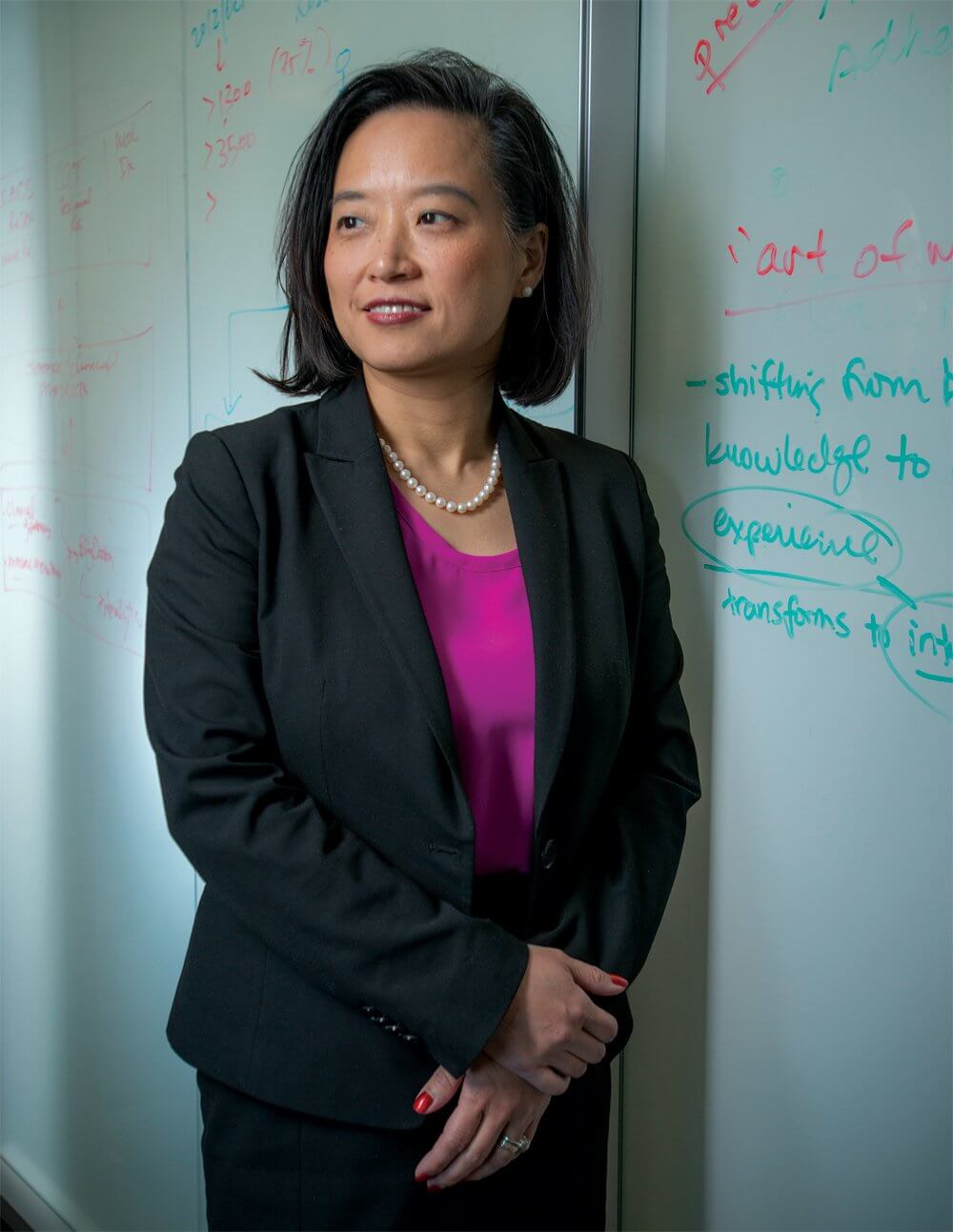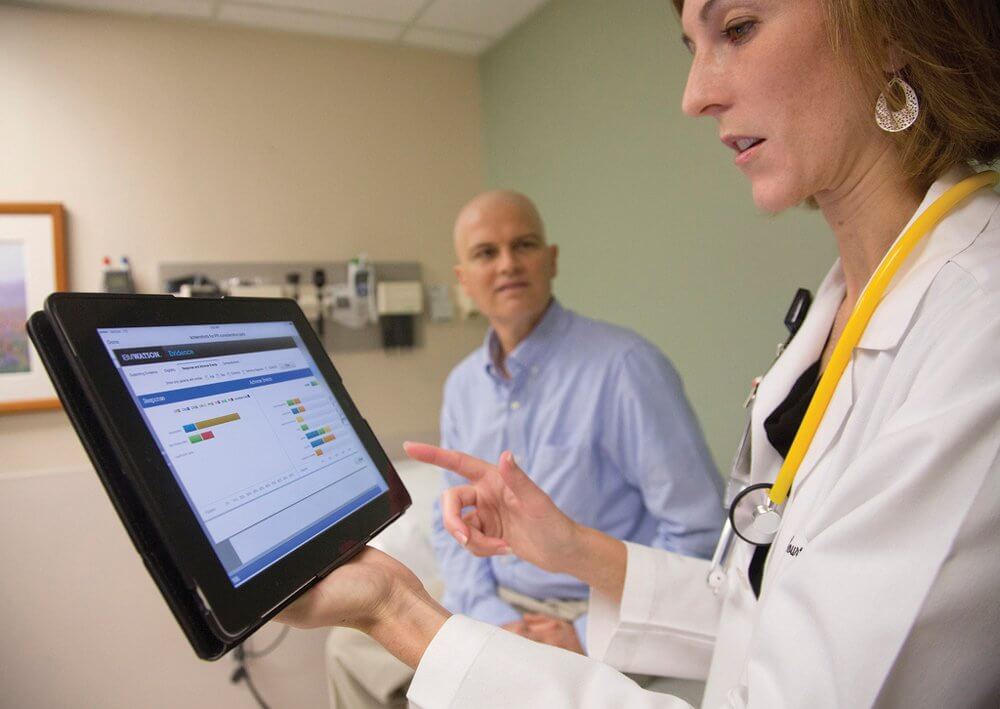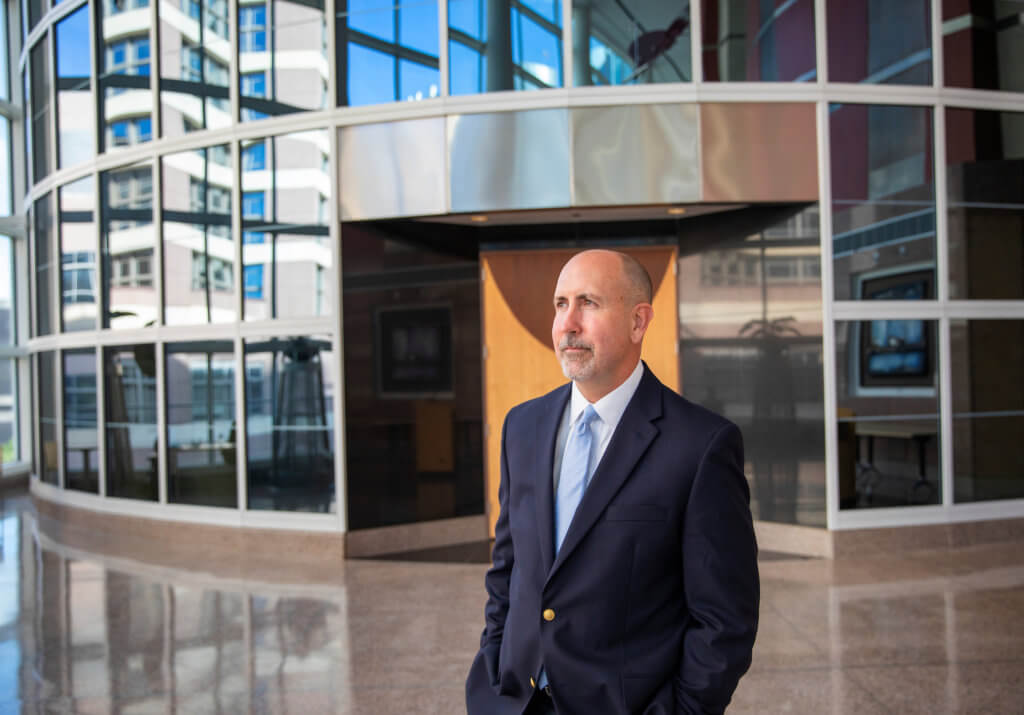IBM Watson Joins MD Anderson in Cancer Fight

A union of technology and human innovation made the first moon landing possible. In that same spirit, The University of Texas MD Anderson Cancer Center is leveraging technology to change the very foundation of cancer care.
MD Anderson’s Oncology Expert Advisor (OEA) powered by IBM Watson is the result of a year-long partnership between MD Anderson and IBM to develop a cognitive clinical decision support tool that can aggregate vast quantities of medical data and deliver relevant information for a particular patient, so that treating oncologists can make evidence-informed decisions for more effective care.
What Watson brings to this partnership is a powerful combination of programmatic computing, natural language processing, hypothesis generation and dynamic learning based on question-answer. It was this impressive computational power that earned Watson first place in the game show Jeopardy! in 2011. In the context of cancer care and research, the OEA is being trained to ingest complex structured and unstructured information from a variety of real-world sources —patient records, physician notes, laboratory results—and weigh these patient attributes against its ever expanding corpus of medical knowledge, oncology literature and treatment guidelines to propose appropriate evidence-based treatment options based on each patient’s unique disease profile.
The Oncology Expert Advisor also offers care pathway advisories, such as alerting a treating physician to a trend toward an adverse event so he or she can proactively manage a patient to minimize toxicity. In this way, OEA serves as a knowledge equalizer to provide practicing oncologists access to the most relevant and up-to-date medical information for decision making.
The Oncology Expert Advisor is only the beginning of what Lynda Chin, M.D., chair of Genomic Medicine and scientific director of the Institute for Applied Cancer Science at MD Anderson Cancer Center, describes as “rebuilding the ecosystem of cancer care.” The problem, as assessed by the Institute of Medicine (IOM), is that “cancer care is often not as patient- centered, accessible, coordinated or evidence-based as it could be.” Chin hopes that her team can harness big data, cognitive computing capabilities and mobile technologies to create a value-based, patient-centered oncology care ecosystem. In this new ecosystem, OEA is the tip of the spear that broadly drives the democratization of a superior standard of care.
“Democratization means we disseminate and share the knowledge and expertise so that patients who are not able to be treated by experts at a specialty center like MD Anderson can still access high quality care informed by the latest medical knowledge. OEA is akin to a knowledge equalizer that can enable practicing oncologists to make better care decisions based on a leveled knowledge base,” said Chin.
With a tool like OEA, Chin imagines that the latest and best care options practiced at a specialty center can be democratized, so that more patients in community settings receive compara- ble care. She hopes that access to expert cancer care will not be limited to the few tertiary care centers where cancer experts work. A majority of the newly diagnosed cancer patients are treated in community setting, explained Chin. “In most cases, these patients end up at tertiary care centers like MD Anderson only after they have failed multiple therapy options, at which point, the chance of a cure is very low. To achieve better patient outcomes, we have to be able to ensure that patients will receive a similarly superior standard of care at primary and secondary care settings, where more patients are at earlier stages of their diseases and their chances for a cure are much greater.”
The project seemed like a natural fit for IBM and MD Anderson to work on collaboratively, explained Steve Gold, vice president for the IBM Watson Group.
“This whole idea of an even broader vision of the eradication of cancer is truly inspirational. And in a very paral- leled way, IBM was on mission to define a whole new generation of computing,” said Gold. “The Watson capabilities provided an opportunity to really advance the way in which information could be explored and harnessed. It was that ability to pull together two really big, bold visions—and redefine the possibilities—that was the foundation for the relationship.”
“We began working with Lynda and her team at MD Anderson to explore ways in which Watson could be applied and how it could be used to reshape the way in which both research would be conducted as well as the way medicine could be practiced in a future patient-centered health care system, as she envisioned,” he added. “And that was one of the first ‘Aha!’ moments certainly, for IBM in the process, as we began to better appreciate the way health care operates. You realize this huge potential to leverage the insight and discoveries that were happening every day on the research side of the house, and the clinical side of the house, with really what was happening in clini- cal practice, at the patient level.”
In addition to the Oncology Expert Advisor, Chin is exploring other innovative technologies to leverage the power of information to revolution- ize cancer care. In particular, Chin is launching another initiative to create a secure and interactive mobile health platform to establish continuity and connectivity between patients and care providers. Such a mobile platform will enable remote and frequent monitoring of patient status, to improve the quality of care, deliver targeted health education, and facilitate personalized detection and prevention strategies to manage health and prevent disease.
As Chin sees it, technology holds tremendous potential to transform medicine. “It is unrealistic to expect any human mind to read, understand and retain the overwhelming amount of medical literature, much less to assimilate such in real-time to make evidence-based care decisions consis- tently for each patient. That is where technology comes in,” she said. “The question is not whether we should deliver the best possible care based on the latest and best medical evidence to all patients. The question is how. It is not good enough to mandate. We must enable.”






